Madhya Pradesh: Stark Contrast as 11 Muslim Homes Leveled, 16 Others Spared Amid Beef Suspicions
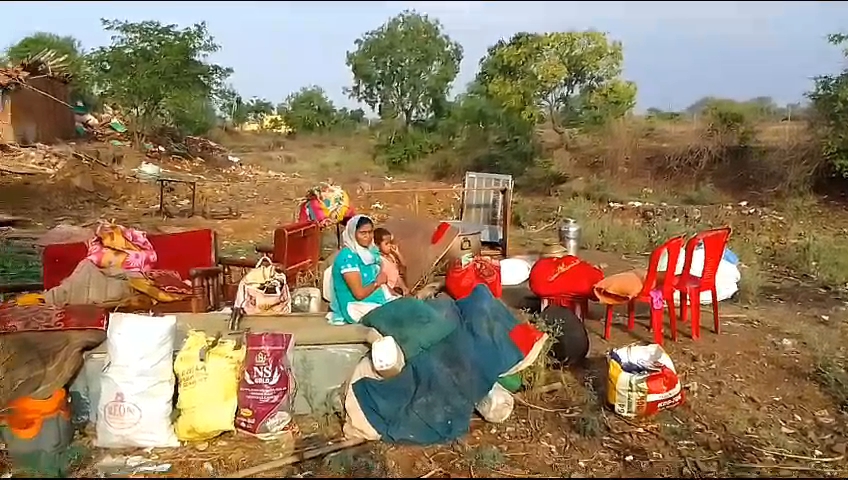
Adnan Ali, TwoCircles.net
Mandla (Madhya Pradesh): In a controversial move, the Mandla district administration in Madhya Pradesh demolished the homes of 11 Muslim residents of Bhainswal village on June 15 following the recovery of meat, suspected to be beef, from their refrigerators. All the homes are owned by members of the Qureshi community. The demolition has left at least 50 members of the 11 families homeless.
The Superintendent of Police, Rajat Saklecha, claimed the local veterinarian confirmed the seized meat as beef. However, samples have been sent for further testing to Hyderabad.
While the families maintain their innocence, authorities justified the demolition — stating the houses were built on “government land”.
However, a stark contrast is evident between 11 demolished homes and 16 untouched ones. Authorities razed the homes during an operation aimed at tackling alleged cattle smuggling, citing discovery of animal hides in sacks and bones in pickup trucks in addition to alleged beef in refrigerators.
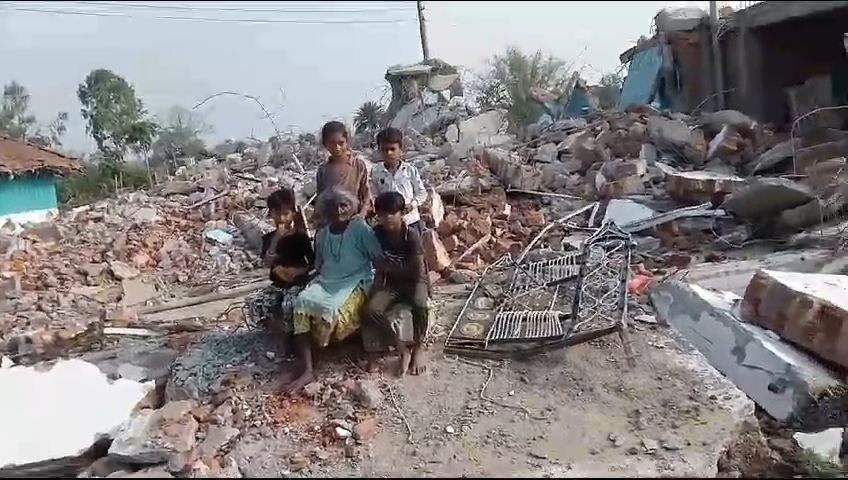
While officials assert that the 11 structures were constructed on “government land”, they acknowledge that 16 other homes in the same neighborhood, also deemed illegal, remain standing where no beef was found.
When asked why 16 homes adjacent to the demolished ones were spared, Mandla Collector Saloni Sidana explained, “We refrained from demolishing the other homes due to constraints — it was Eid and out of sensitivity, we decided to leave them untouched for now. We plan to take action against all illegal structures in this village soon. Similar operations are ongoing across the district, where we have demolished 32 structures in the last month.”
The police raids were prompted by a recent incident in Dithori village, on the outskirts of Mandla, where a dhaba owner allegedly witnessed a cow being dragged by a rope attached to a white Bolero pickup around 9 am four days earlier.
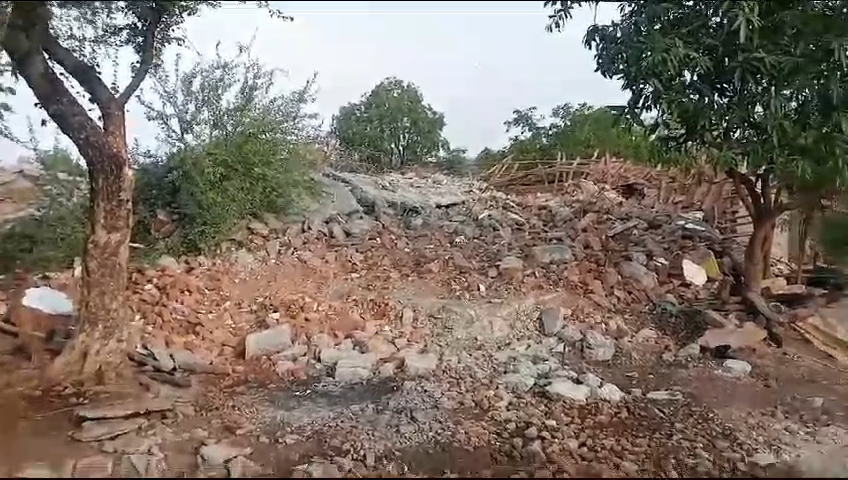
Local residents intercepted the truck and interrogated its two occupants, Sev Prasad Dhuvre and Salim Qureshi, a resident of Bhainswahi. The police allegedly seized five cows, one of which later died, sparking protests by local organizations.
This incident brought the police’s attention to Bhainswahi, which has a documented history of violence associated with cattle smuggling.
Bainswahi village, home to approximately 1,100 residents from tribal and Muslim communities, includes around 80 Muslim households. On July 14, a police operation targeted approximately 27 homes, purportedly built on 15,000 square feet of government land, reducing the settlement to heaps of rubble and debris.
Among the structures demolished were newly constructed brick homes from the past two years, alongside some that had stood for decades.
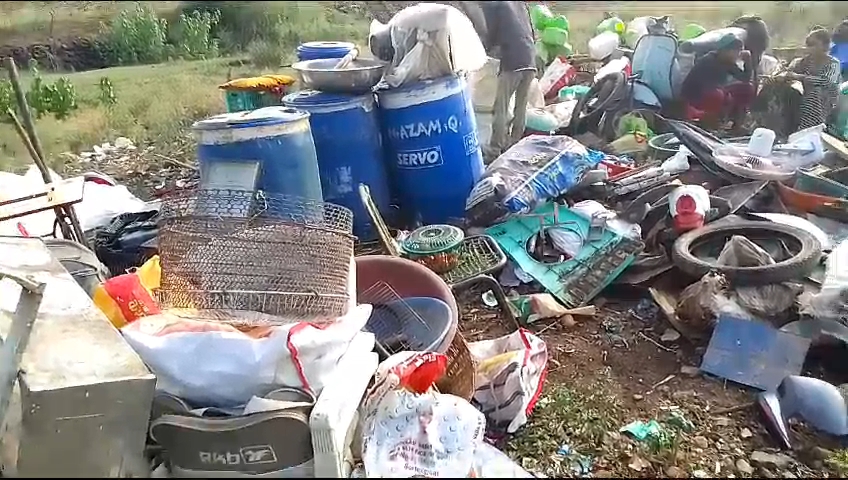
Shumaila Qureshi (name changed on request) sitting outside her demolished home in the scorching heat said, “We have been on the street for two days. Our belongings are scattered, and children are suffering in the heat. We haven't eaten anything for the past two days.”
Supreme Court advocate Govind Yadav has condemned the action, highlighting violation of fundamental rights. He emphasised Article 20(2) of the Constitution, which protects against double jeopardy. "Even if they are guilty, the court will decide the punishment, not the administration by demolishing their homes," he argued. Yadav further stated their intention to challenge this action in the Supreme Court.
One of the affected families claimed they had been residing at the location for the last 50 years and were never informed about the land being government property. They added that they have been paying electricity and water bills regularly.
A first information report (FIR) has been filed, resulting in the arrest of one individual. Following a tip-off regarding illegal cow slaughter, the police are currently attempting to nab 10 additional suspects.
This incident raises significant concerns regarding legal compliance. In February 2024, the Madhya Pradesh High Court ruled against house demolitions in the state, stating the action does not adhere to proper procedures and uphold the principles of natural justice.
Such punitive demolitions follow a consistent pattern nationwide, especially in states such as Uttar Pradesh, Madhya Pradesh, Uttarakhand, Chhattisgarh, Gujarat, Assam, etc.: a protest erupts or a crime takes place in a locality or neighborhood, which escalates into violence. Shortly thereafter, the police announce the identification of specific individuals or groups as the “masterminds” of the unrest and crime.
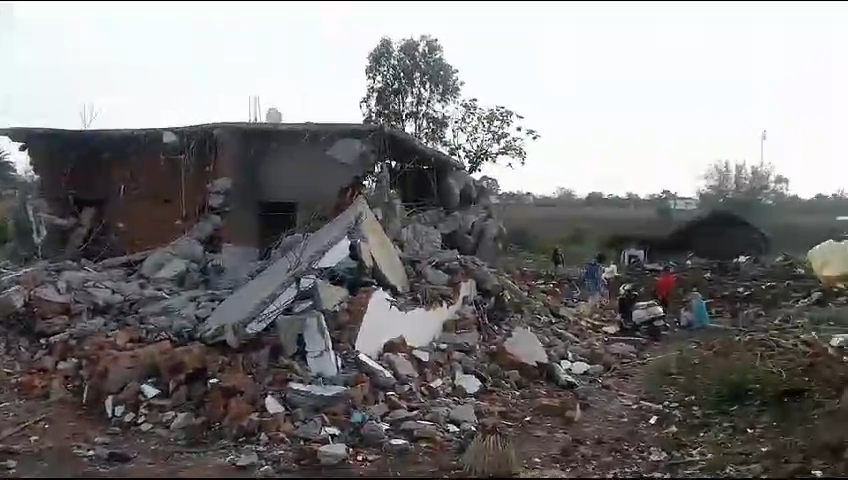
Almost immediately, the municipality declares these individuals are residing in unauthorized structures (often accompanied by backdated notices of dubious authenticity). Subsequently, these buildings (homes) are demolished. Typically, the entire sequence — from the police identification of alleged masterminds to the municipality’s declaration of illegality and the actual demolition — takes place within twenty-four hours.
The same happened in several districts in Uttar Pradesh (which is considered as the architect of the bulldozer justice) and at Jahangirpuri in Delhi, Nagaon in Assam, Khambhat in Gujarat and Khargone in Madhya Pradesh.
